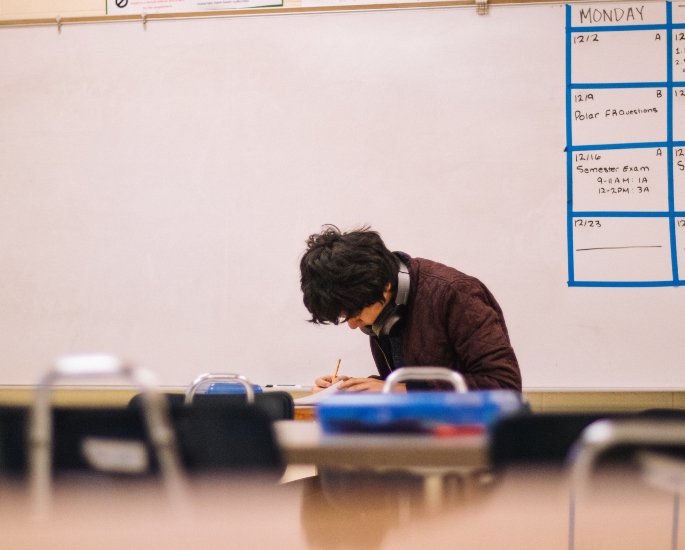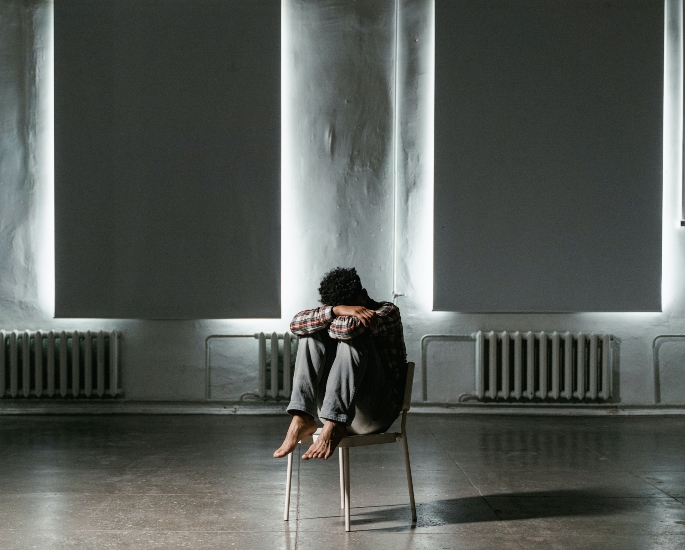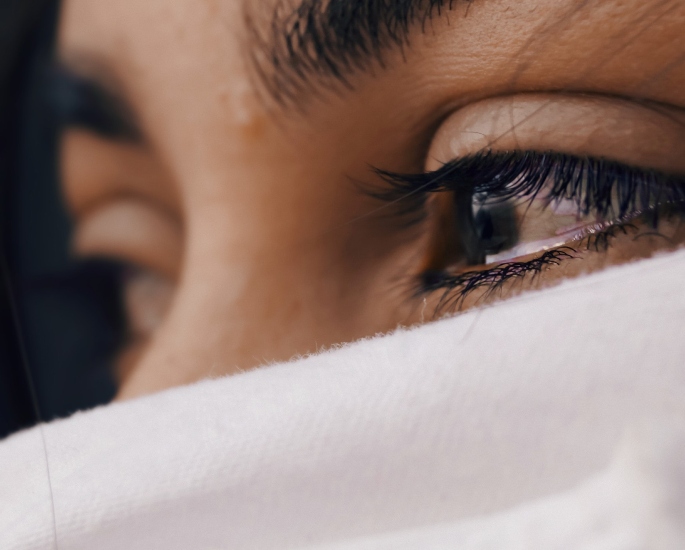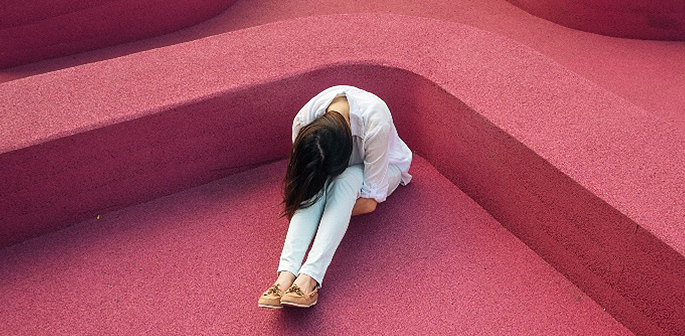“I used to think there was something wrong with me."
Whether we are talking about South Asians in the UK, India, Pakistan or Bangladesh, one thing is common. People sometimes take their own lives but still, suicide is ignored.
Death is a terrible thing but why does the South Asian community refuse to accept that suicide happens?
Does the problem lie in the fact that they don’t readily talk about their feelings?
Whatever leads a person to suicide, the chances are that it could have been prevented in many cases.
If someone who is suffering feels they can open up, they are more likely to seek medical help.
Mental illnesses such as depression and anxiety are often factors that can lead a person to suicide. As with any illness, treatment is needed to prevent it from getting worse.
So, why is it that South Asians continue to ignore these things? Why is it shameful to be suffering? If suicide is ignored, it will continue to cause families to suffer.
Warning: the following content contains examples related to cases of suicide.
Student Suicide

In 2020 the National Crime Records Bureau (NCRB) reported that one student in India died by suicide every hour.
Two years earlier in 2018, there were more than 10,000 student suicides, which was an increase of more than 500 since 2016.
Suicide rates in India are the highest in young adults aged 15-29 and 60% of them are women. Academic stress is cited as a factor that causes depression and sometimes leads to suicide.
Md. Sanjeer Alam from the Centre for the Study of Developing Societies in New Delhi said:
“A student commits suicide when he doesn’t get emotional support at the time of crisis. This might happen when individual expectations are too high.
“Parental and peer pressure also have an adverse effect.”
Students can feel worn down by the expectations of their parents and the pressure to succeed. Education is deemed as extremely important within the South Asian community and failure is not an option.
If a student cannot talk to their parents about how they are feeling, they will feel alone, leading to depression.
Honest conversations about how they are performing should be an option.
As this is not often the case, a student can feel they have no other choice and take the drastic step of suicide. If they felt they could talk openly, these deaths could be prevented.
Asif* is a 21-year-old student from Mumbai spoke about losing a friend to suicide in 2019:
“There were signs that he was struggling with his studies, he started to drink a lot after he failed some exams and he just changed. I thought it was a phase and he would be ok.
“One of the teachers found him dead in his room and we were all shocked. I didn’t know that he was not coping at all and that he would do such a thing.
“His parents were so confused. They kept saying that someone had killed him because he wouldn’t do something so stupid.
“The police said it was definitely suicide though. I guess he couldn’t talk to anyone.”
“I think there was a lot of pressure on him to be a great student. His two older brothers were both computer engineers and his parents expected him to be the same.
“If I could go back, I would have asked him if he needed to talk. I just ignored it and now he is gone forever. Attitudes towards suicide in India must change. I miss him every day.”
When these deaths do occur people tend to say things like, they looked happy, why would they need to take their own life. There is an ignorance that surrounds the subject, with suicide being ignored.
South Asian Women

As per a BBC report, in the UK, South Asian women are two and a half times more likely to attempt suicide than white women.
This is due to cultural conflicts where women struggle to abide by tradition in western society.
Older generations can put pressure on them not to forget their roots and to remember where they come from. Women refuse to speak out about their problems to protect the family’s reputation.
This internal conflict leads to worry and anxiety and is a huge factor in the high numbers of self-harm among South Asian women.
Naz Shah, the Labour MP for Bradford West emphasises the need to talk about suicide:
“It is absolutely an issue and it’s getting worse. There isn’t even a word for depression in some South Asian languages.
“A whole heap of work needs to be done to raise awareness of these issues so people are not ashamed to get help.”
Just like students in India, if South Asian women felt comfortable opening up about their feelings, they could get the help they needed and self-harm could be avoided.
Ridhi* is a 25-year-old from Birmingham who was in an abusive relationship and felt she could not talk to anyone. She explained:
“In the Desi culture, people don’t talk about these things. There are so many women in abusive relationships who never say a word. I was one of them and I never spoke out.
“My parents disapproved of me having a boyfriend so I guess I didn’t want to give them the satisfaction of telling them that he used to hit me. It was so stupid and I got depressed.
“I felt worthless and started to self-harm as I thought I deserved pain. One of my friends, a white girl, noticed some cuts on my arm and called me out. First, I was angry.
“Then I just burst into tears and told her everything. I was so broken and she helped me so much. I left the relationship and started seeing a psychiatrist and I stopped self-harming.
“There’s no way my Asian friends would have known what to do. If Sarah*, my friend has seen the cuts, maybe they had as well. They just ignored it. My parents don’t know what happened.
“My relationship with them isn’t great but it’s getting better.”
“I thank Sarah* all the time for what she did. She saved my life.”
Other issues like domestic violence also affect South Asian women in the UK and as divorce is not seen as an option, they suffer in silence.
This abuse often leads to suicide as the woman feels it is her only way out.
If the Desi community didn’t continue to sweep these topics under the rug, a change could be made. Instead, just as suicide is ignored, so too are its causes.
Mental Illness

The NCRB found that the top issues that led to suicide in India were family problems, love affairs, drug abuse and mental illness.
For those aged between 18 and 45, family problems were the biggest cause.
This speaks volumes as to why suicide is such a big problem in the South Asian community. Family problems should be talked through and solved together but they are not.
Instead, they are leading to young adults feeling suicide is their only option. So desperate for a way out, they take their own lives where one conversation could have saved them.
In South Asian culture, it is often heard that one should stop complaining and get on with it whatever the problem may be. The only pain we should mention is physical pain, which can be treated.
Feeling sad, low, worthless are not things to be talked about and are certainly not a type of illness. Feeling pressure to study well, get a great job and get married is just life.
However, these areas should not be taken lightly. Mental illness needs to be treated as much as a physical illness does. Dr Samir Parikh, a psychiatrist, stresses upon this point, saying:
“First of all, we have to consider mental illness as a medical illness.
“We have to stop thinking that they can be faked, stop thinking that they are individual limitations or they are a matter of choice, all of this is rubbish.
“We are more likely to suffer from mental illness than any other illness. For instance, if I have any other ailment, say diabetes or thyroid, if I do not consult a doctor, then my condition would deteriorate.
“It’s no difference whether it is the physical illness of the body or the disease of the mind.”
If mental illness and suicide are ignored, how can we hope to save those affected?
Suffering in Silence

The Asian and Pacific Islander American Health Forum (APIAHF) found that South Asians in the US aged 15-24 were the most likely to suffer from depressive symptoms.
Another report found that South Asian women in the US had a higher rate of suicide than the general population. It also said South Asians were the least likely to use mental health services.
The report also found that South Asians only visit the doctor when suffering from physical pain. It also said that South Asian doctors are less likely to ask their patients about their mental wellbeing.
Gurjeet* is a 34-year-old South Asian woman from London who has suffered from depression since her early teens:
“I used to think there was something wrong with me. Words like depression and anxiety meant nothing to me because I never heard them said by anyone in my family.
“I was bullied at high school and started self-harming when I was 16. One day I just blurted it out to my mother who was stunned. It was obvious she didn’t know what to say.
“She asked me to stop doing it and that was all there was to say. There was no mention that maybe I needed some professional help so I didn’t mention it again.
“I tried to commit suicide later that same year but my family doesn’t even know.”
“When I was in my 20s I tried again and they don’t know about that either.
“It’s only recently that I started getting help and am now on medication and see a therapist. I live away from my family and when I do see them, we still don’t talk about it.
“Maybe if my mother had taken me to a doctor when I was 16, my life would have turned out differently. A doctor would have let me know my suffering wasn’t abnormal.
“I would have got the help I needed before things had got worse but that’s how it is with Indian families. You don’t talk about these things because it’s shameful.”
Covid-19

The 2020 Covid-19 pandemic saw more than 300 suicides in India during the March-May lockdown. Stress and lack of social activities are causing more depression, alcoholism and self-harm in the country.
Loss of jobs and lack of financial freedom is also cited as one of the main reasons why suicide figures are increasing. Even after the pandemic, it is thought that India will suffer.
Mass unemployment will lead to self-pity, further depression and alcoholism and this, in turn, could lead to further suicides.
The data shows that mental health is a real problem and the pandemic has not made it any easier.
With the suicide rate increasing in India over the last two years, why is it that suicide is ignored?
Manny* is a 25-year-old graduate who lives in Mumbai and lost his job as a software engineer because of the pandemic. Speaking about the challenging times he and others are facing, Manny states:
“It has been such a difficult time for me and my friends. We studied so hard and now there are no jobs for us. We drive Ubers or work for food delivery companies.
“The pandemic hit India really hard and I think it will take a long time for the country and the economy to recover. I don’t know when I will work as an engineer again.
“I see some of my friends who are very depressed and I feel low as well. It feels like we have no hope. I do know people who have taken their own lives.
“People are ashamed of losing their jobs and they don’t know what else to do.”
“They go to extremes and see no way out and then they kill themselves. It’s very sad.”
The South Asian community prefers silence because speaking out about your problems is seen as a weakness. It’s not just a weakness to your family members though.
Even more than that, it’s an even bigger issue when it comes to others in the Desi community watching.
For many keeping the honour or izzat is paramount otherwise it is seen as bringing shame or sharam to the family.
This raises a big question about this debate. Is reputation really more important than our own survival?
If suicide is ignored even when all the data tells us it is getting worse, we are only stopping ourselves from living full and happy lives.
If you are suffering from feelings of low mood, or having thoughts of taking your own life, do not suffer in silence. Call Samaritans free on 116 123 or visit www.samaritans.org. Help is always available.
Individuals can also take advice from their local General Practitioner who take suicidal thoughts very seriously.






























































